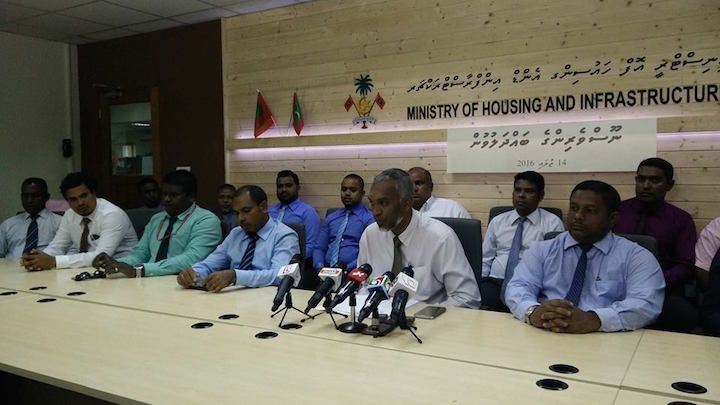Audit uncovers illegal expenses by housing ministry in 2014
A compliance audit for 2014 found that the ministry made an illegal advance payment of MVR120 million (US$7.8 million) to the state-owned Maldives Roads Development Corporation for a project to build roads in seven islands.

03 Jan 2017, 09:00
The ministry of housing and infrastructure made an illegal advance payment of MVR120 million (US$7.8 million) to the Maldives Roads Development Corporation in 2014, a compliance audit has revealed.
While the public finance regulations limit advance payments to 15 percent of a project’s total cost, the audit office found that the ministry paid 25 percent to the state-owned corporation for an MVR480 million (US$31 million) project to build roads in seven islands.
In a letter seeking approval from the finance ministry to release the funds, the housing ministry had claimed that the decision to pay 25 percent was made following consultations with senior officials from the anti-corruption watchdog and the audit office in January 2014.
However, according to the minutes of the meeting, the housing ministry was told that the advance payment ceiling could only be raised by amending the public finance regulations, the audit report noted.
Become a member
Get full access to our archive and personalise your experience.
Already a member?
Discussion
No comments yet. Be the first to share your thoughts!
No comments yet. Be the first to join the conversation!
Join the Conversation
Sign in to share your thoughts under an alias and take part in the discussion. Independent journalism thrives on open, respectful debate — your voice matters.




